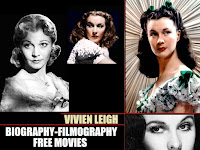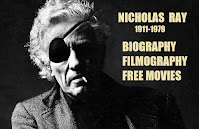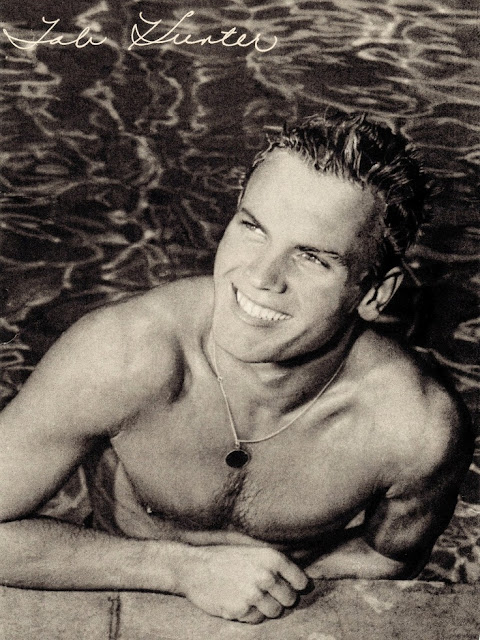The tall, strapping, blond-haired, blue-eyed Tab Hunter was Hollywood’s golden boy of the 1950s — and quite possibly the most beautiful all-American boy who ever lived. Throughout a decade of major films (and a few decades of less than major films), Hunter was dogged by rumors of his homosexuality. In his 2005 autobiography Tab Hunter Confidential, the famously private star broke his public silence and revealed details of both his professional and personal life, including his love affair with actor Anthony Perkins. The book has been transformed into a highly entertaining, insightful documentary film directed by Jeffrey Schwarz, which will screen at San Francisco’s Frameline Film Festival this Saturday and at L.A.’s Outfest on Hunter’s 84th birthday, July 11. The film paints a portrait of a sweet, kind, shy young man who grew up embarrassed by all the attention that his Adonis good looks brought him. In Hollywood he struggled to be taken seriously despite his good looks, but eventually proved himself to be a fine actor. Tab Hunter sat down for an exclusive interview with The Advocate about reliving his life for the book and the film, gaining inspiration from Geraldine Page, and why one of his favorite leading ladies was the drag queen Divine. At 83, Hunter seems to be just as sweet and kind as when he made his film debut 65 years ago. The Advocate: What were the most challenging things about writing the book? Tab Hunter: Coming out to myself. I’m a very private person who grew up with a strict German mother who believed “loose lips sink ships.” Without a doubt, my sexuality was something that I just never discussed, especially in the 1950s. But we heard that someone was going to write an unauthorized biography, so I thought, Why not get it from the horse’s mouth, instead of some horse’s ass after I’m gone? What was the most challenging thing about retelling those stories for the film? When the camera was on, and Jeffrey Schwarz asked me, “Can you remember your first relationship with a man?” I said, “Oh, my God. What do you wanna know?” But I was very surprised by responses to the film. So many people told me they felt insecure about themselves but I made them feel better. I’m very pleased about that. Did anyone ever inspire you in that way? I worked with Geraldine Page, who I adored, in the Playhouse 90 TV drama Portrait of a Murderer in 1958. I said, “Gerry, people love you, you’re such a fine actress. But they hate my guts.” She grabbed my arm and said, “If people don’t like you and don’t get your message, that’s their bad taste. Just do the best you possibly can.” I never forgot that. What has it been like for you to watch the documentary? The moments that have the most impact for me are those about my mother, the death of my older brother [whom he worshipped], and finding out about Tony Perkins (pictured at left) having AIDS [of which he died in 1992]. I had a hunch to call him and touch base, and when I picked up the phone, I heard on the radio that he’d passed away. Have you kept in touch with the stars who are interviewed in the film such as Debbie Reynolds, Clint Eastwood, Connie Stevens, and Robert (R.J.) Wagner? R.J. and I see each other every few years. We were all part of the end of the studio system, with Tony Curtis and Debbie Reynolds, and that was an exciting time. Those moguls ran a tight ship. The studios were there to protect the stars. Warner Bros. never said a word to me about my sexuality, but Paramount talked to Tony and told him not to see me anymore. We’d been together for a few years.
How do you think it might have been different if you were a young gay movie star today? Being a romantic leading man in those days, and even today, you can’t be gay. There are exceptions like Neil Patrick Harris and Portia de Rossi, but TV is probably more accepting of it than film. Just like when live TV came in — you got the opportunity to do things you couldn’t do in the movies. What advice would you give to young gay actors who are beginning their careers today? I’d say be truthful and honest to yourself, and do what you think is right. Being gay, it’s going to be difficult to be a leading man or woman. But somewhere under all the crap there is a pony. Tell us about starring opposite Divine in John Waters’s Polyester and in Lust in the Dust. She was one of my favorite leading ladies. It was Natalie Wood, Lana Turner, Rita Hayworth and Divine [laughs]. She was so dedicated to the work. Without the drag, he looked like a beached whale, but once the camera was on, she was on! And John Waters is one of the most creative directors I’ve ever worked with. He really knows what he wants because he’s created a great blueprint. He plants the seeds and then lets you go. For film fans who may not be familiar with your work, which three films are you especially proud of that they should view first? Damn Yankees, because it was my first musical. I was the only one who wasn’t in the Broadway production, and my character was very guileless. I’m very proud of That Kind of Woman with Sophia Loren, directed by Sidney Lumet, and I loved doing Gunman’s Walk because I finally got to play a bad guy. Which of your films would you most want destroyed? I’ve got a ton of those! It’s called survival. Hunter lives on a ranch in Santa Barbara, Calif., with Allan Glaser, his partner of 30 years, who produced Tab Hunter Confidential. The two also co-produced Hunter’s 1985 film Lust in the Dust. Their quiet life with their horses is currently much more hectic than usual as they’ve been traveling the film festival circuit with the new documentary.
Tab Hunter Confidential.







.jpg)







.jpg)





.png)




.jpg)






.jpg)































































































































































































































.jpg)







.jpg)





.png)




.jpg)






.jpg)













.jpg)


.jpg)










.jpg)



.jpg)

.gif)

.jpg)



.jpg)

















.jpg)
.jpg)

.jpg)
.jpeg)